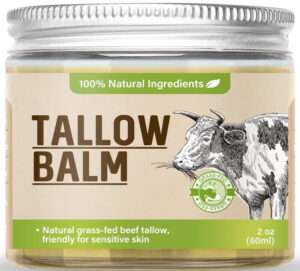No products in the cart.
No products in the cart.
Figuring out who you truly are isn’t always easy, but it’s one of the most rewarding things you can do. When you know your true self, what truly matters to you and what drives your choices, life feels more aligned. Self-discovery isn’t just about curiosity—it’s about living in a way that reflects your values, passions, and purpose. By asking the right questions, you can uncover the version of yourself that feels most authentic and fulfilling.
At the root of self-discovery is the desire to live a life that aligns with your core values. This journey isn’t about perfection; it’s about uncovering and embracing the truth of who you are. Every step you take toward self-awareness enables you to live with intention and authenticity, leaving behind the masks that don’t serve you.

Photo by Mikhail Nilov
Being authentic means showing up as your unfiltered, unaltered self. It’s about aligning your actions and choices with your beliefs, values, and passions—even when external pressures might push you in another direction.
Authenticity is more than just being honest; it’s a commitment to congruence. Think of it like being the same person both in the mirror and among your peers. When you live authentically, you’re not playing roles; you’re embracing your genuine self. According to Psychology Today, authenticity stems from living in harmony with your motives and personality traits source. This practice fosters deeper trust and connection with yourself and others.
However, authenticity isn’t automatic. Sometimes, societal norms or expectations can make it feel safer to conform. The key lies in consistently choosing integrity over pretence, reinforcing the freedom to live as your true self. As explored by Vix Anderton, authenticity begins with daily choices—choosing courage, openness, and transparency source.
Knowing yourself is like having a personalized road map for life. It shapes how you navigate relationships, career decisions, and even personal challenges. Here’s how understanding your authentic self can profoundly impact your well-being:
On a social level, you no longer feel the need to seek constant validation. Self-awareness anchors your sense of self-worth, creating a healthier connection with both yourself and the people in your life.
Discovering your inner truth also equips you with mental clarity. You’ll make decisions that align with your values, reducing internal conflicts and second-guessing. As BetterUp explains, understanding yourself allows you to embrace your quirks and improve areas of growth source.
When you know who you are, you stop letting others define you. Isn’t that worth pursuing?
Self-discovery isn’t just about uncovering who you are—it’s a way to establish clarity about your choices. Questions, especially the reflective kind, can be like guiding lights in a foggy landscape, helping to illuminate paths you might not have considered before. By asking yourself questions, you create space to explore what truly makes you tick. Below, we explore two key aspects of how questions aid self-discovery.

Photo by Surja Sen Das Raj
Self-reflection is the foundation of understanding yourself better. It’s about looking inward to unpack what your feelings, experiences, and reactions reveal about your deeper identity. Think of it as hitting pause to process the “why” behind your actions—something many of us rush past in daily life.
Reflecting on past events brings perspective. For instance, revisiting how you respond to challenges can uncover patterns in your thinking or behaviour. Did you show resilience, or were there lessons you missed the first time around? Your past isn’t just a record; it’s a resource for growth. Harvard Business Review highlights how self-reflection sharpens accountability and personal growth.
Reflection also provides insight into the present. Have you felt moments of unease that you can’t quite name? Taking time to reflect on these feelings can clarify whether they stem from unmet values or misaligned actions.
The benefits go beyond emotional clarity. Mindful reflection enhances mental well-being by reducing stress and improving emotional balance. According to Psychology Today, regular reflection can help you find calm in chaos, making it a powerful tool for self-discovery.
Questions unlock exploration. While answers might close the door to thinking, open-ended questions widen it. They lead you to interpret, imagine, and engage with possibilities you hadn’t yet considered.
Why do questions matter so much? They encourage curiosity instead of certainty. For example, rather than asking, “What’s wrong with me?” try asking, “What can I learn from this situation?” This small shift transforms self-criticism into self-compassion. As Conversations at the Edge explains, powerful questions guide us toward deeper insight without pressuring us to define a single, “correct” answer.
Questions also challenge assumptions we take for granted. “Who am I without my career?” or “What do I want my legacy to be?” are prompts that dig beneath surface identifiers like job titles or social roles.
Instead of solving problems outright, questions empower you to discover your own truths. As Forbes points out, questions aren’t about immediate resolution—they’re about developing emotional intelligence and learning to navigate life’s complexities with grace.
By integrating reflective questions into your daily habits, you facilitate ongoing self-discovery. These aren’t quick fixes—they are the gentle nudges that keep authenticity and personal growth within reach.
Embarking on a journey of self-discovery can feel like peeling back the layers of an onion—it requires patience, insight, and a willingness to face the truth. However, when you start asking the right questions, you begin to better understand the essence of what makes you, you. Below, we explore eight questions that serve as poignant tools for uncovering your authentic self.
Understanding your core values, true self and beliefs is like finding the anchor in a stormy sea. Values shape the decisions you make, the priorities you set, and the relationships you nurture. Take a moment to reflect—are family, honesty, creativity, or freedom at the centre of your personal compass? Identifying these allows you to align your actions with your principles.
If you’re unsure about where to begin, consider journaling or listing values that resonate most with you. As Mindful.org suggests, reflecting deeply on your responses can help foster a stronger connection with your authentic self.

Photo by Kelly
Think about the moments when you feel completely alive and at peace. Is it while painting, cooking, hiking in the mountains, or even having meaningful conversations? Joy is often a map to your passions and purpose. When you lean into these activities, you’re honouring your authentic self.
Fulfilment often extends beyond hobbies and interests—it can include relationships or acts that give you a sense of contribution to something greater than yourself. Ask yourself, what leaves me feeling content long after the activity has ended?
We all have settings or situations where our guard feels down. Maybe it’s around certain friends who encourage you to be your raw, unfiltered self, or perhaps during solo moments when you’re free from societal expectations.
Look at how you act in these situations. What about them feels so liberating? Identifying these contexts can help you intentionally choose environments and interactions where your authenticity thrives.
Sometimes, uncovering your true self means recognizing what you aren’t. Whether it’s feeling out of place in a specific social setting or adopting habits that go against your instincts, discomfort is often a red flag.
Ask yourself: Are there people, places, or activities that drain your energy or make you second-guess your worth? These moments point to the aspects of life misaligned with your authentic self.
No one is static. Change is constant, but it’s effective only if it’s intentional. Reflect on areas in your life that feel stagnant or misaligned. Maybe you want to build better habits, change careers, or form healthier relationships.
When you consider what you want to change, focus on the “why” behind it. This gives your transformation purpose, helping you stay committed to becoming more aligned with your values and desires.
Fear is like an anchor—it keeps you tethered, but sometimes, it’s to the wrong things. Are you afraid to speak your mind, take risks, or say no? These fears could be robbing you of authenticity.
To confront them, think about what you might gain by facing these fears. Would you feel freer, lighter, or more fulfilled? Breaking down what intimidates you often reveals opportunities for growth and self-expression.
For more on overcoming fears, BetterUp’s 50 Self-Discovery Questions provides thought-provoking prompts to help you break through mental barriers.
There’s often a tug-of-war between how we see ourselves and how others perceive us. But here’s the twist—how much do you care about external opinions? Do you want to be seen as honest, passionate, kind, or confident?
While it’s natural to care about social perception, the goal is for your outward image to align with your internal truth. When these match, your life becomes more harmonious, and you’re no longer living an act for others.
Think about the ripple effect you want to create in the world. Whether it’s inspiring others, building something meaningful, or simply being remembered for your kindness, your legacy reflects your deepest values.
Long-term thinking helps you frame your daily actions in a way that aligns with what truly matters. Are you making choices today that help build the legacy you envision? Reflecting on this can bring clarity to your purpose and motivate you to live authentically.
Self-discovery thrives on intentional action. These steps help you uncover layers of your authentic self while aligning your daily life with who you truly are. Let’s explore three powerful methods to deepen your connection with your inner identity.
Journaling is like having a conversation with yourself—an unfiltered way to connect with your mind and emotions. Writing provides structure to your thoughts, making it easier to explore what’s within. If you’re unsure where to start, prompts can guide you.
Here are some journal prompts to kick-start your reflection:
You can also free-write for 10 minutes without censoring yourself. Set a timer, pick a topic, and let the words flow. The goal isn’t perfection, but honesty.
For more inspiration, check out this collection of journal prompts for self-reflection. Whether detailed or simple, journaling brings clarity and depth to your self-exploration.

Photo by Mikhail Nilov
Mindfulness is about grounding yourself in the present moment without judgment. Simple practices can help you tune into your thoughts and emotions, giving you the space to notice patterns and truths about yourself.
Here are three beginner-friendly mindfulness exercises:
Mindfulness doesn’t require hours of meditation—it’s about consistency. Even five conscious minutes a day can improve your awareness. Explore more tools and tips from Mindful.org for incorporating mindfulness into your routine.
Sometimes, the people closest to us see traits or tendencies we may overlook. Seeking feedback from trusted friends can offer valuable perspectives that help you grow and understand yourself better.
How can you approach this? Here are three tips:
Feedback isn’t just about strengths—it can highlight areas for improvement too. Consider tools like this guide to learn how to ask for and use feedback effectively in your journey.
By blending journaling, mindfulness, and authentic feedback, you create a solid foundation for self-discovery, helping you live more authentically every day.
Self-discovery can feel like an uphill climb, especially with the challenges we carry in our daily lives. These obstacles don’t just slow us down; they can make the process seem impossible if left unchecked. Here’s how you can identify and tackle some of the most common hurdles.

Photo by RDNE Stock Project
The fear of others’ opinions can feel paralyzing, stopping you from being true to yourself. This worry often leads to self-censorship, where you mold yourself to fit what you think others expect. The result? A version of you that feels far removed from your authentic self.
So, how do you move past this fear? Start by understanding that everyone has insecurities, and most people are too wrapped up in their own worlds to scrutinize your every action. Forgiving yourself for caring too much about opinions is the first step toward growth.
Here are approaches to managing fear of judgment:
Want more strategies? Check out this guide on overcoming fear of judgment.
Overthinking feels like quicksand—you keep stepping in deeper with “what ifs” and worst-case scenarios. It’s exhausting and undermines your confidence. Combined with self-doubt, it creates a cycle that stifles self-awareness.
One of the most effective fixes is learning to redirect your focus from over-analyzing outcomes to taking productive actions. Start with small, manageable steps:
Building self-confidence often means creating space for mistakes. Remember, self-discovery isn’t about perfection—it’s about learning and growing, even from failures. For additional insight, visit these techniques to combat overthinking.
In the rush of daily life, finding time to focus on your inner world can feel impossible. Between hectic schedules and endless to-do lists, prioritizing self-discovery often drops to the bottom of your priorities.
But here’s the good news: even small pockets of time can make a massive difference. You just need to be intentional. Here’s how you can create space for self-discovery in your routine:
Making time isn’t always about grand gestures—it’s about purposeful choices. Need inspiration? Explore ways to prioritize self-care in busy schedules.
By addressing these hurdles one step at a time, you can move closer to uncovering your authentic self, rather than getting stuck in the challenges that threaten to hold you back.
Self-discovery is not a one-time event; it’s a lifelong practice that evolves as you do. The questions explored here are starting points to uncover and embrace your true self.
Take the time to reflect and reconnect with what drives you. Small steps, like asking yourself these mindful questions, can lead to big changes in how you live and love.
Your authenticity is your greatest asset. Make it a priority every day. What step will you take today to honour your true self?
If you need any further information or assistance with this article, don’t hesitate to Contact Us
Karen Blake
BAHN-NLP
TFT-DX



